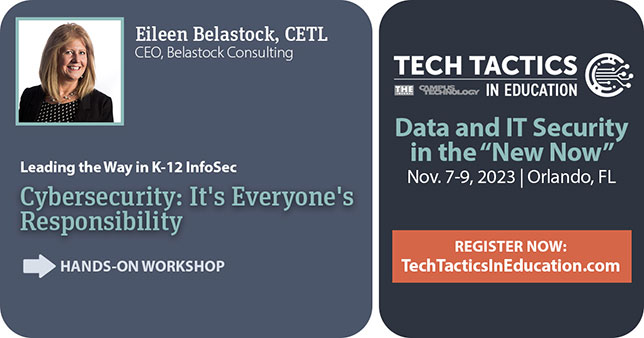
Intrusions into education networks have never been more rampant. And at this point, information security is the top concern among IT leaders and administration in K–12 districts. What's more, there is the distinct possibility that AI will compound the problem, while also being used to help deal with threats.

Tech Tactics in Education speaker Kevin Lewis on his journey from school security and IT support staffer to data privacy advocate — and his mission to bring greater transparency and accountability to ed tech privacy practices
Technology can not only save money and administrative resources for school districts, but it can also lead to improved accuracy, real-time reporting and budget management capabilities, and speedier purchasing and accounts payable processes. Here, one district CFO shares his insights on digitally transforming finances in K–12.
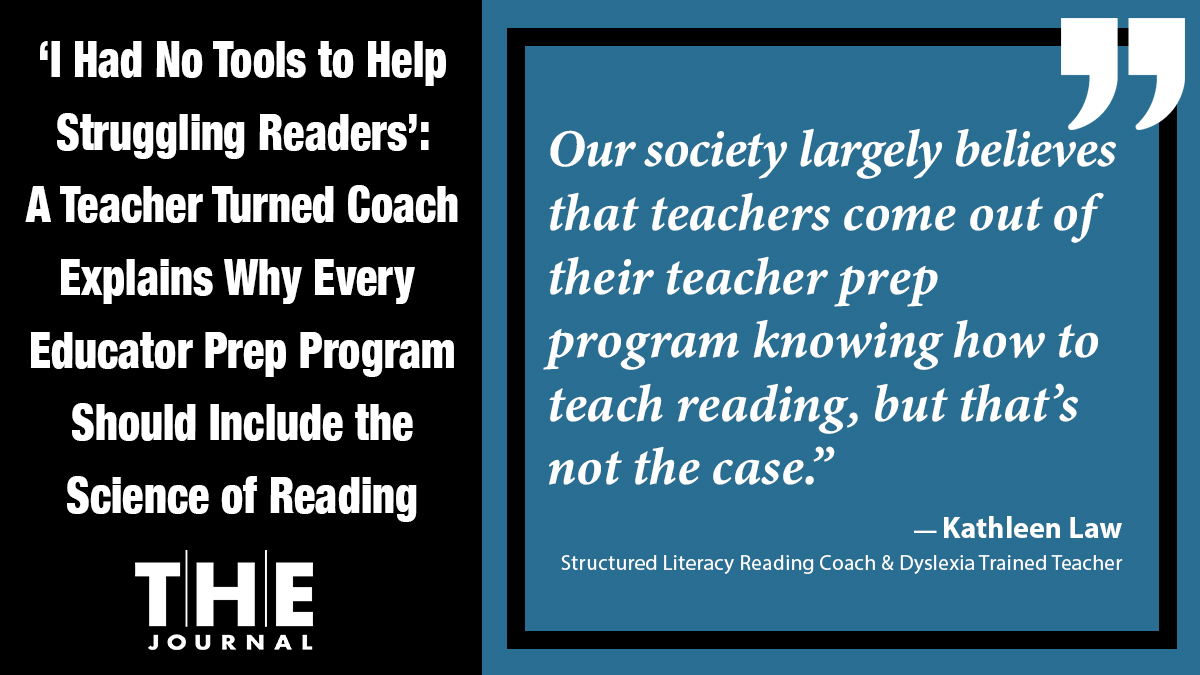
With nearly half of the nation’s new teachers still graduating without an understanding of high-quality reading instruction, former classroom teacher-turned-literacy coach Kathleen Law discusses why — now more than ever — every teacher prep program in the country should include the Science of Reading and give future teachers the foundational tools they need to help struggling readers.
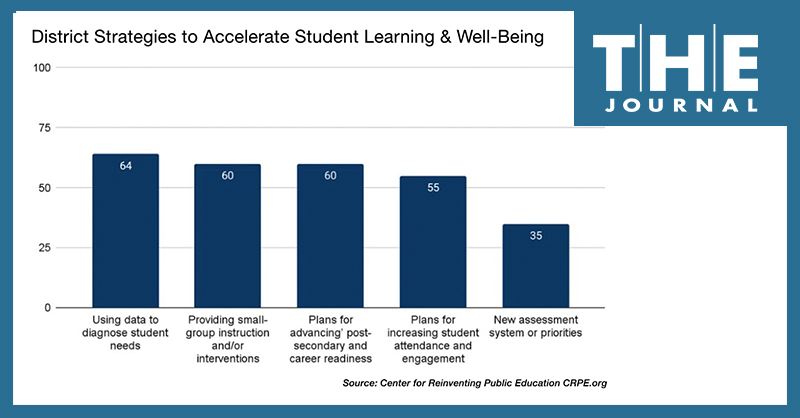
The pace of K-12 school districts' spending of ESSER Funds has picked up significantly this school year, and education leaders and researchers have shared tips and guides to help district leaders efficiently evaluate — or re-evaluate — their options when making procurement decisions, to ensure students benefit and stakeholders don't come to see spending decisions as failures.
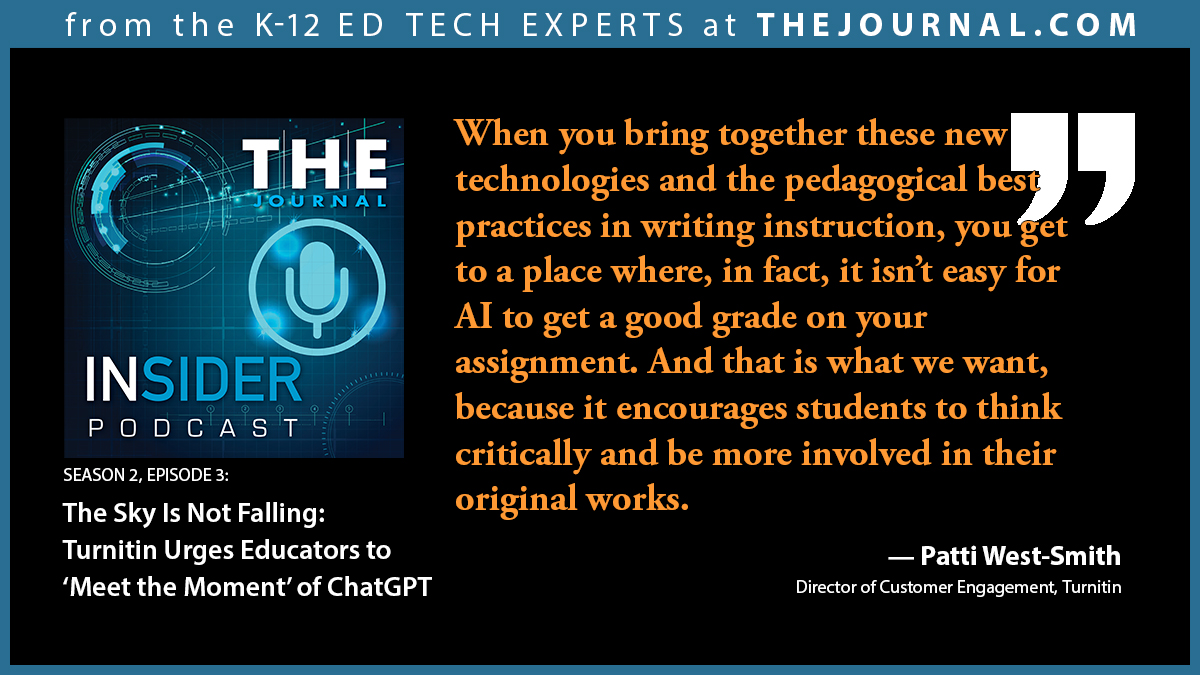
Two former classroom teachers who have been working on Turnitin’s AI writing detection tool and related features to help educators better understand ChatGPT — and show them teachers how to use AI to save themselves time and how to tweak assignments so that ChatGPT cannot earn a good grade on writing homework — both believe that ChatGPT has presented a growth opportunity — or perhaps more of a growth demand — for writing instruction, which they explained in a podcast interview with THE Journal recently.
A Funds For Learning E-rate expert shares what K–12 procurement officers and IT leaders need to know so they can be prepared to apply for the expanded funds if and when the FCC decides to expand the E-rate eligible services list — particularly if the expansion plan of choice means that the amount of E-rate funds to cover modern cybersecurity services is limited, at least for the first few years.

Depending on who’s speaking, ChatGPT is projected to either further erode K-12 learning outcomes or it will boost writing instruction and overall learning outcomes when used with appropriate guardrails. Several education technology leaders explained to THE Journal why they fall in the second category and how K-12 education should and can embrace ChatGPT in classrooms.

Over the three years since Ector County ISD launched its tutoring program, the district has achieved remarkable growth, and superintendent Scott Muri recently joined THE Journal Insider podcast host Kristal Kuykendall to share some of the lessons learned during the pilot and implementation, such as its use of outcomes-based tutoring contracts, strictly structured tutoring sessions, and teacher involvement.
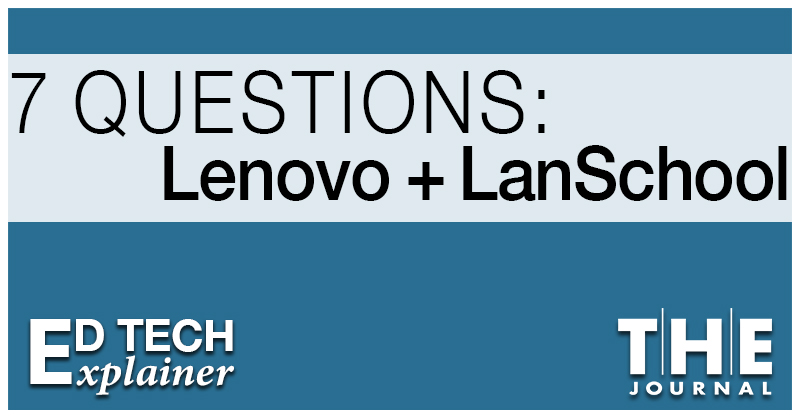
For THE Journal's 7 Questions Ed Tech Explainer series, Lenovo’s Education Software General Manager Coby Gurr shares how Lenovo’s K–12 division and particularly its classroom management software LanSchool emphasize inclusivity, accessibility, and a holistic, integrated approach to school technology — and how Lenovo EDU’s line of hardware, software, and services aim to provide a “comprehensive learning environment.”